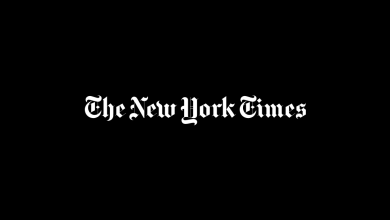As the Baby Formula Shortage Drags On, Moms Are Pumping for the Cause

Diana Feng, a mother in Douglaston, Queens, spent weeks this spring caught up in the frenzy of the ongoing infant formula shortage, refreshing store websites and asking friends to help her track down the Similac formula she needed to feed her 5-month-old daughter, Charlotte.
Then a friend told her about Judy.
Judy Cheung, in nearby Whitestone, is a packaging designer and first-time mother who also happens to be a super producer of breast milk. She has already donated 2,399 ounces to the New York Milk Bank, which mainly provides milk to hospitals for sick or premature infants. And yet she still had two full freezers of excess supply.
The friend asked Ms. Feng if she wanted any of Ms. Cheung’s extra milk. Ms. Feng, who has had difficulty breastfeeding, said she did. Before long, Ms. Feng had hundreds of ounces of gifted breast milk in her freezer, enough to supplement formula feedings for Charlotte — and enough to share with another mother she knew who was also struggling to find formula for her new infant.
“I was flabbergasted,” Ms. Feng, 31, said of the offer. “Because it’s not every day that someone offers breast milk, certainly not for free.”

Judy Cheung inside her home in Queens. She has already donated 2,399 ounces of breast milk to the New York Milk Bank.
While the Biden administration is taking emergency steps to end the formula shortage, including flying in formula from Europe, the problem appears to be worsening in the short-term as families stock up, reducing supply. Across retailers in the New York City metro area, 70 percent of infant formula was out of stock as of May 21, according to Datasembly, a retail data provider, in line with national trends.
The Abbott baby formula plant in Sturgis, Mich., whose closure and recall of its products sparked the crisis, plans to restart production on June 4, and start shipping a specialty formula, EleCare, around June 20. The Food and Drug Administration commissioner, Dr. Robert M. Califf, told the Senate recently that he expected supply to return to normal around the end of July.
The American Academy of Pediatrics and the F.D.A. discourage the casual sharing of breast milk because of the risk that the milk may be contaminated with bacteria, viruses, medications or other substances. But some mothers, at their wits’ end, say that they need less guidance about what they can’t do and more advice about what they can do to feed their babies through the crisis.
As regular supply channels fail, the formula shortage has prompted a huge volunteer effort among parents to help other parents feed their babies.
In New York and across the country, parents are arranging formula exchanges where they post about their unneeded formula. Parenting groups on social media and text chains are sharing information about informal donations of breast milk and crowdsourced sightings of formula at stores. Formal breast milk banks are reporting an explosion in interest from potential donors.
Read More on the Baby Formula Shortage
- Understand the Shortage: With just a handful of companies making infant formula for the U.S. market, the shutdown of an Abbott Laboratories plant had an outsize effect.
- Missing Safeguards: The shortage has revealed regulation gaps that make it hard to monitor the deadly bacterium that led to a recall.
- A Desperate Search: As the United States faces a baby formula shortage, some parents are rationing supplies, or driving for hours in search of them.
- An Emotional Toll: The shortage is forcing many new mothers to push themselves harder to breastfeed, with some even looking for ways to start again after having stopped.
While Ms. Feng had considered the risks of the donated milk, she said she felt comfortable in accepting it because Ms. Cheung is a friend of a friend who had passed rigorous health checks to donate to the milk bank. Baby formula, as the recall has shown, can also be dangerous, some mothers point out.
“At the hospital, when you give birth, there’s a lot of ‘breast is best,’” said Ms. Feng, who does breastfeed, but has low supply and has always needed to supplement with formula. “I think fed is best.”
For her part, Ms. Cheung says she is more than happy to help other parents at a moment of crisis, though she does feel at times as if she is constantly attached to her pump. She has begun to pump less now that her son, Adam, is 7 months old and has started solid food.
“My family calls me a cow,” she said. “Like literally. And it’s insulting and nice at the same time, you know?”
At the forefront of the effort in breast milk donation are mothers who have excess milk. Some were told to pump at an early stage of their baby’s life to increase their supply, which led their bodies to produce more milk than their baby consumed.
Pumping an extra bottle or two a day, they have been filling their freezers. And after hearing stories of other parents struggling to find formula amid the shortage, they became determined to try to use their stash to help.
Sharing breast milk is not uncommon, experts believe: A 2018 online survey of 456 U.S. mothers found that 12 percent had donated milk informally, and just under 7 percent had given their babies donated milk. (If a mother decides to take donor milk, experts recommend asking a potential donor





